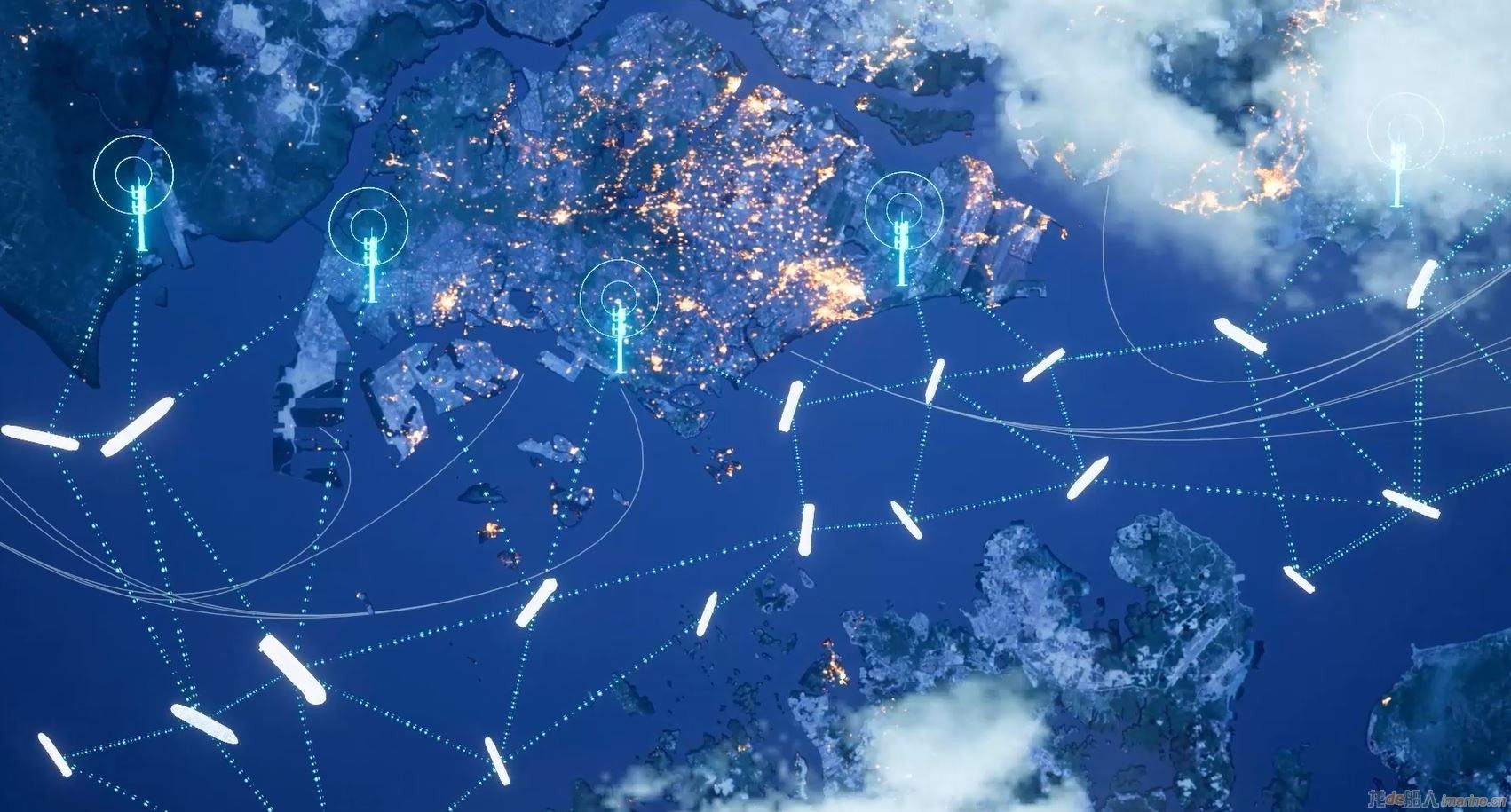|
Decarbonisation Toolkit – Decarbonising the Maritime Industry for a Better, Greener Future
Although regulatory compliance is motivation enough to improve the environmental performance of a vessel or fleet, shipowners ought to look beyond the bare minimum requirements and embrace a proactive approach to emissions reduction based on data analysis and careful planning says Marco Cristoforo Camporale, Senior Director Strategy, Inmarsat Maritime.
 -->
-->
The International Maritime Organization (IMO) has set ambitious objectives for the reduction of greenhouse gas emissions from shipping by 2050, and measures such as the Carbon Intensity Indicator (CII) will be crucial to meeting these targets.
Outside of regulatory compliance, a proactive approach to emissions reduction based on data analysis can harness the full potential of decarbonisation tools to significantly improve operational efficiency while saving time, effort and money.
This is according to the Decarbonisation Toolkit – Decarbonising the Maritime Industry for a Better, Greener Future, a recently published report commissioned by global mobile satellite communications provider Inmarsat and compiled by UK-based maritime innovation consultancy Thetius.
Based on Thetius’ research and drawing on the experiences of various maritime businesses, Decarbonisation Toolkit provides an accessible blueprint to realising a more efficient and environmentally sustainable shipping industry. This takes the form of a ‘three-by-three’ framework consisting of three phases, each containing multiple actions steps, and three domains of maritime energy transition to which these actions can be applied.
 -->
-->
Discover, Understand, Execute
Phase 1– Discover – involves defining internal and external emissions-reduction targets, gathering relevant data, and analysing this data to benchmark the company’s performance against its goals. Here, the report recommends a gap-analysis study, for example comparing an attained CII rating with a required CII rating to illustrate the gap between compliance and non-compliance.
At phase 2– Understand – the company uses the insights obtained in phase 1 to diagnose the challenges it faces. It then identifies the most appropriate tools to overcome these challenges and achieve its desired strategic outcomes.
In the final phase – Execute – the business consolidates all information on its challenges, identified solutions and anticipated outcomes to produce an achievable decarbonisation plan for implementation across the three energy transition domains: Operation, Ship and Human Element.
The three domains of maritime energy transition
Operation:
At the operational level, decarbonisation can be achieved using a variety of tools and processes. In September 2022, Scandinavian shipping company Wallenius Wilhelmsen announced its intention to adopt an AI-based voyage optimisation system across its 120-vessel fleet. The announcement followed the company’s 18-month trial of a performance-routing solution that yielded a 6.9% increase in vessel efficiency, equating to a projected 170,000-tonne reduction in emissions when rolled out fleet-wide.
Alongside voyage optimisation, collaboration and data sharing is another means of achieving operational decarbonisation. In February 2023, KCC Chartering and integrated energy company Raízen signed a three-year contract of affreightment targeting more energy-efficient operations through improved charterer–cargo owner communications and data exchange. By minimising legs in ballast and improving the efficiency of loading and discharge processes, the partnership is expected to result in a 40% reduction in the carbon intensity of its agreement.
Other effective methods of operational decarbonisation presented in the Decarbonisation Toolkit include port-call optimisation and green corridor schemes.
Ship:
One vessel decarbonisation solution that is rapidly gaining traction is carbon capture and storage. In February 2023, ship management company Eastern Pacific announced the successful installation of carbon capture and filtering technology on board chemical tanker Pacific Cobalt. Installed in the ship’s stack, the system will capture up to 40% of the vessel’s carbon dioxide emissions, filtering out sulphur and particulate matter from the exhaust gases.
Enhanced hull design, meanwhile, can greatly improve vessel efficiency. In late 2018, NYK Line unveiled an ‘exploratory’ design for a pure car and truck carrier named ‘NYK Super Eco Ship 2050’. In conjunction with a remodelled hull form that decreases water friction and reduces the weight of the superstructure, the vessel would feature hydrogen fuel cells, waste heat recovery technology and an advanced propulsion system. NYK believes its design would yield a 70% reduction in overall energy consumption compared to a conventional vessel of the same type and dimensions.
Energy-saving coatings and devices, wind power, and connectivity and data exchange infrastructure can also contribute to more environmentally friendly ships, while the deployment of alternative fuels will be critical to maritime decarbonisation in the long term.
Human Element:
The tools of a human-led decarbonisation strategy include behavioural economics and change management in addition to the formation of skilled decarbonisation teams. Crews must be trained in the new technology and processes that enable greener shipping operations, and they must be willing to embrace the changes that maritime energy transition entails.
Ultimately, the key to maritime decarbonisation at the company level is implementing an achievable, data-driven plan for the application of solutions that support greener and more efficient operations today and for decades to come. As a long-standing technology partner to international shipping, Inmarsat remains committed to supporting maritime businesses in overcoming challenges, seizing opportunities and achieving decarbonisation goals. |